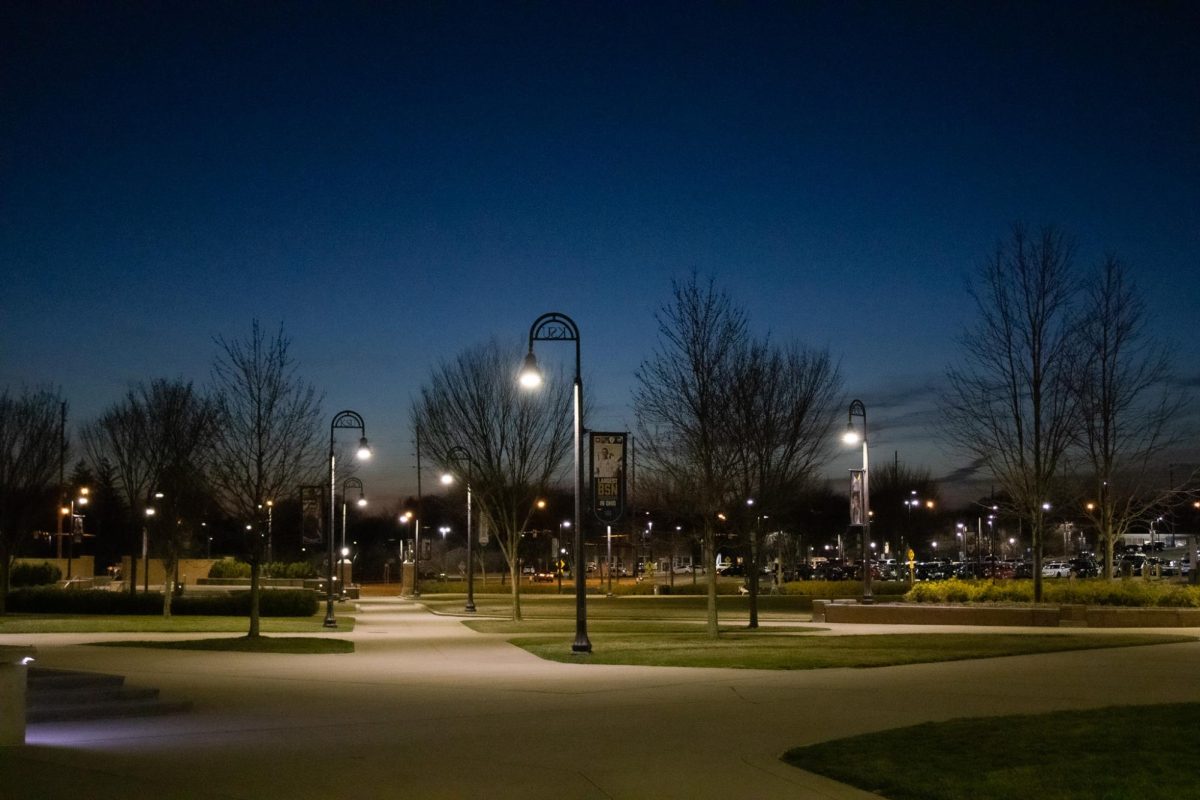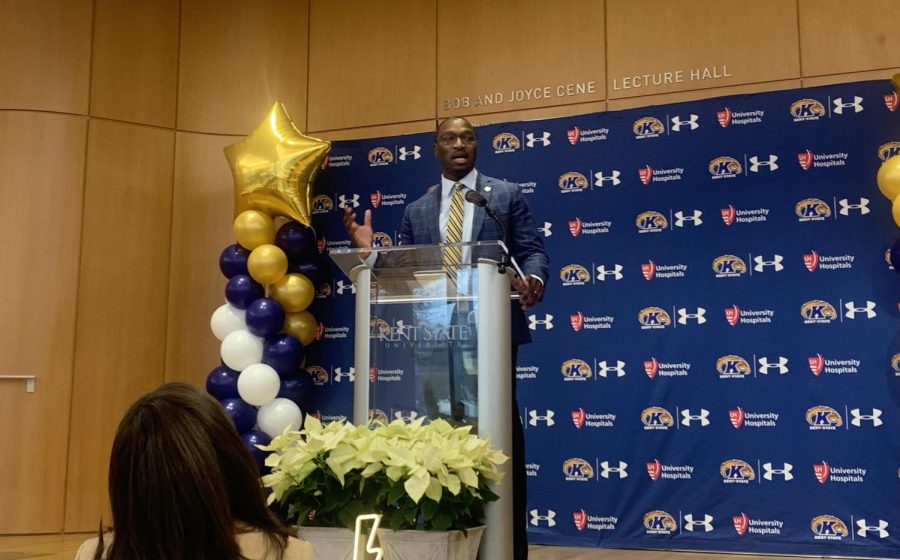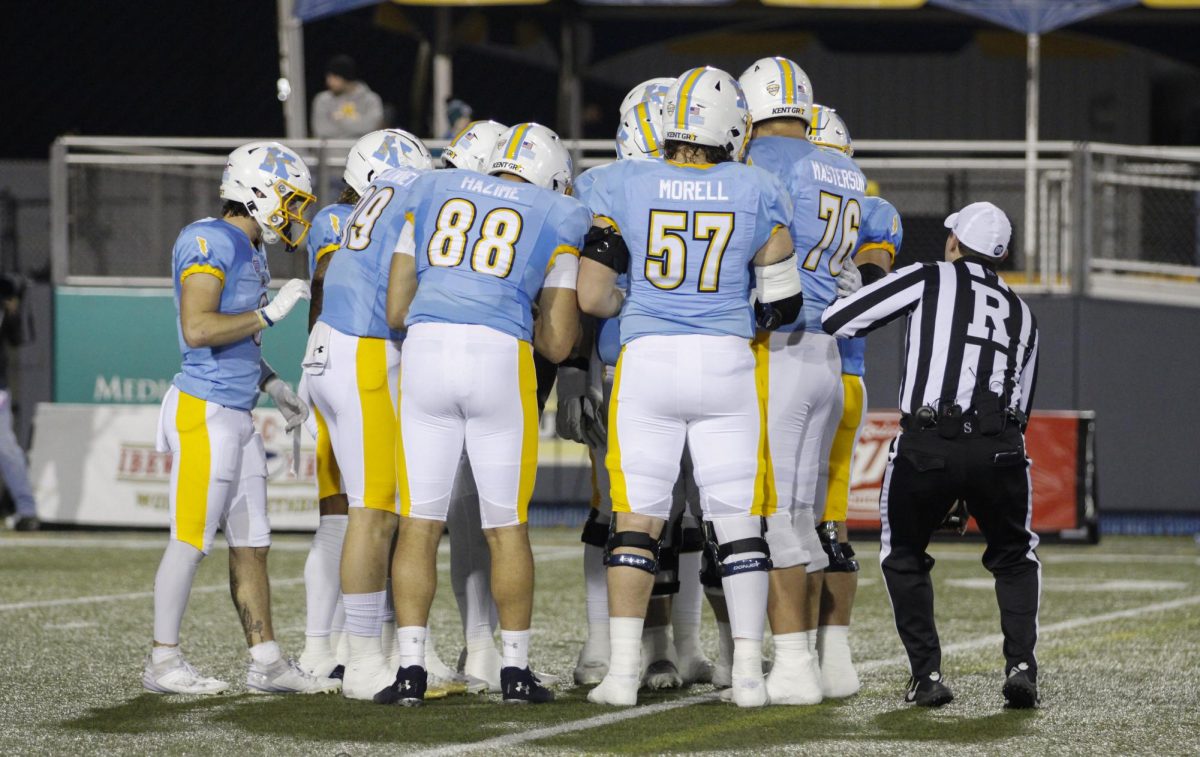“28 days to go” is a notification that Meghan Westerh, a senior sports administration major, has started seeing often, since her relationship became long-distance in Oct. 2023.
Using an app to countdown the days until they can see each other is just one way that Westerh and her girlfriend try to manage their long-distance relationship.
Though individuals may not know anyone at the university who is in a long-distance relationship, up to 34% of college students may be in this exact situation.
Managing a long-distance relationship on top of school, social life and work can be difficult. However, Ashley Shaheen, a clinical counselor at Healing Strides Counseling Services, said that with an end goal in mind, it can be possible.
“If it is something that is maybe only a six-month thing or a year thing, [it is possible],” she said. “Long-distance relationships with ‘no end in sight’ is when things can get really tricky.”
A long-distance relationship may not be the ideal circumstance, but that doesn’t mean that it can’t work at all. There are many tips and tricks for balancing school, a social life and a relationship.
One thing Shaheen recommends for making the relationship work is having similar goals and values as your partner.
“For example, if two people are in college and their goal is to ultimately end up in the same region or in one person’s location or the others,” she said. “[Where] a person wouldn’t turn down a lot of opportunities to be with the other person. So there wouldn’t be resentment created.”
Michelle Culley, a licensed professional clinical counselor supervisor and founder of Middle Path Counseling in Stow, felt similarly about having shared goals with your partner.
“[It is important] for a couple to say, ‘we are making this sacrifice together so that we can be together in the future,’” she said. “That future casting and future planning, reminding each other why we are doing this [is important]. To recognize that both parties are making a bit of a sacrifice and it’s difficult.”
Westerh said she plans on moving out to Washington in August to be with her girlfriend, which is just one way that they share similar intentions to maintain their relationship. Currently, she goes out to D.C. once a month for a visit.
Another tip Shaheen and Culley both recommended is scheduling more quality time using the technology available for long-distance couples, such as Facetime and Zoom.
“Connection leads to trust,” Culley said. “So what that looks like is including the other person in as many details of your life as is comfortable. You can do things like opening a video chat and simultaneously doing homework or studying with [your] partner on the video chat.”
Westerh said she and her girlfriend often schedule dates to maintain their personal connection.
“We try to do a date night or a lunch date via FaceTime once a week to keep the traditions that we had before she left,” she said.
Setting expectations for levels of communication is something that Shaheen said is critical to avoid bitterness building within the relationship.
“Being accessible to each other as much as is appropriate while also setting boundaries [is important],” Shaheen said. “It is easy to fall into the hole of ‘well we’re long distance so we need to keep in touch, so we’re just going to text all day long, every day, no matter what we are doing.’ Maybe have a scheduled phone call every day, so you’re not creating that resentment of ‘I have to be by my phone all the time to be close to this person.’”
Westerh said she calls her girlfriend everyday since they have gone long distance.
“If I’m not in class, or she’s not in work, we are on the phone and texting,” she said.
While there are many tips for making a long-distance relationship work amidst school, some argue that it could be unnecessary and unhealthy for a college student. It is a new environment for students, with many new experiences to be had, and they may feel restrained by trying to manage the relationship on top of everything else.
Culley said a long-distance relationship can also get hard if one partner is having an easier time adjusting to college than the other.
“One of the most difficult things is when one person is making new friends and the other partner can feel a little left out,” she said. “It’s hard for someone to feel secure about the other person making new friends. It is a very normal and wonderful part about being in college, is meeting all these new people.”
One way she recommended for overcoming this hurdle is Facetiming your partner when you are with your new friends.
Another problem that can occur with long-distance relationships in college is balancing one’s personal life and schoolwork on top of the relationship.
“It is super hard to find balance between fostering the relationship and fostering your own personal growth,” Shaheen said. “Fostering your own personal growth is the point of college, so it’s just a tricky balance.”
Culley recommends taking time for yourself to avoid feeling overwhelmed by college and your relationship.
“It is important for everybody to engage in as much self care as possible because there is an added stress,” she said. “That added [relationship] stress, along with all of your other new responsibilities at college can be stressful, so that self-care is really important.”
Westerh said maintaining this balance has not been too difficult for her because of the nature of her personal life. However, it is starting to become harder.
“My major isn’t the hardest in the world, and my workload isn’t a lot,” she said. “The only thing that’s ever difficult to manage is that I work two jobs and then I also work with the Kent State softball team as the team manager. That’s where it gets difficult because we are both busy, but I’m trying to juggle being a student, working my two jobs, and working with the softball team.”
Culley said problems can also arise when one partner starts to feel jealous and restrict the other.
“It can get tricky if one person feels they need to limit the other person’s activity from afar,” she said. “What that might look like is, ‘Hey you’ve been hanging out with your friends every Friday night, but I feel jealous and you have to stay home.’ Then it feels confining and trying to control another person’s behavior from afar.”
Westerh said that, over time, maintaining the long-distance relationship has gotten easier for her.
“The first few months were difficult because we basically lived together before she joined [the army],” she said. “But the past couple of months, it’s been getting easier, especially because I have been going out there once a month to visit her.”
All in all, though a long-distance relationship in college may seem difficult and receive a lot of negative feedback, it is possible.
“You’re probably going to get a lot of naysayers when you start a long-distance relationship,” Culley said. “That happens naturally out of care for someone. You get a lot of negative input from people. It is important to note that it does work, it can work. It is more difficult, but it can work.”
Olivia Montgomery is a digital tech. You can contact her at [email protected].








